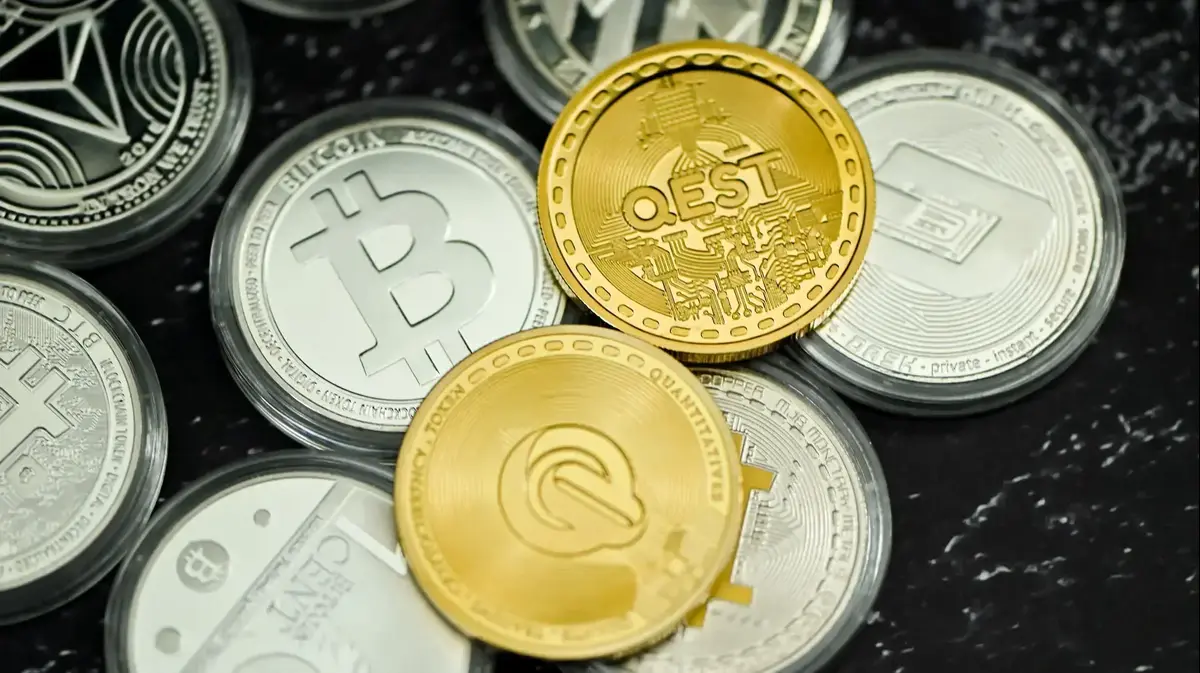Enlarge image
Bitcoin, Ether and Co.:
Interest in cryptocurrencies is growing during the crisis
Photo: DADO RUVIC/ REUTERS
manager magazin: Mr. Sandner, it wasn't long ago that Russia's President Vladimir Putin spoke out in favor of Bitcoin as a means of payment. Was that a preparation to avoid possible sanctions?
Philipp Sandner:
I don't think so.
In January, the Russian central bank had called for a ban on cryptocurrencies.
It's very back and forth, so I wouldn't see it as preparation.
Russia is now excluded from the bank's communication system Swift - and thus from a large part of international payment transactions. Could Russia now use cryptocurrencies to circumvent these sanctions ad hoc?
In order to use cryptocurrencies as a means of payment and thus circumvent the sanctions, the infrastructure would first have to be in place.
So far, the digital coins have mainly been used by private individuals.
There is almost no integration of companies.
Of course, it may be that Russia, after the banks were excluded from Swift and the central bank was also sanctioned, is now considering building a corresponding system.
Phillip Sandner
Philipp Sandner
(42) is an economist and professor at the Frankfurt School of Finance & Management.
His research areas include blockchain technologies and cryptocurrencies.
How long would that take?
I think you would have to reckon with six to twelve months.
Thus, at least part of the economy could be connected to blockchain-based stablecoins.
But that takes more than twelve months than six months.
What would Russia have to do specifically to build a cryptocurrency infrastructure for companies as well?
The blueprint specifies El Salvador.
Bitcoin was introduced there as the legal currency in autumn 2021.
First, the government would need to provide a gateway for businesses as well as people - similar to the PayPal app.
Payments would then be made with this app – via the cell phone.
Could such an app be set up without further ado?
That would certainly be feasible, the government would then of course have to support and promote the spread.
But there is a big hurdle.
What hurdle is that?
The App Store.
American companies - i.e. Apple and Google - would have to allow the payment app.
The mobile phone would suddenly be part of the critical infrastructure.
And one would probably expect that there would be western governments that would then knock on the door of the companies to decide on the approval of such apps.
But that's all pretty hypothetical.
An alternative would be to use normal browsers to provide a gateway to blockchain systems.
So it initially seems unlikely that Russia will be able to circumvent sanctions in the short term with the help of cryptocurrencies.
Russia could try to build a system, but there are some hurdles.
You might also consider joining the Chinese digital currency, since the digital yuan has been launched recently.
Nevertheless, a higher interest in cryptocurrencies can be observed. Bitcoin has posted double-digit gains since Sunday after Russia was banned from Swift. Where is this hype coming from?
It's a phenomenon that I've seen more than once.
Bitcoin always becomes particularly interesting when there is a crisis in states and inflation is increasing rapidly.
That was the case in El Salvador, in Venezuela and also in Turkey.
But one certainly cannot speak of widespread use encompassing the entire population.
It is mostly young people who are open to the topic – and always only a minority.
In fact, one could now ask oneself, if this pattern works like this, whether Bitcoin will become interesting for more people in times of crisis.
The whole world seems to be slipping into a crisis at the moment and Bitcoin could - if the story of the "crisis currency" convinces people - increase in value significantly.
Have crypto sales in countries like Russia and Ukraine recently increased?
Bitcoins were increasingly being bought in Ukraine at a local price that was ten percent higher than the world price.
People have apparently exchanged their currencies for bitcoins.
It could be that they were people who are on the run and wanted to take their money with them that way.
It could also be that they wanted to protect their money against currency losses in their own currency and therefore bought bitcoins.
And another reason: when credit cards stop working, bitcoin technically always works.
I have also observed that the Ukrainian government has opened wallets for Bitcoin and Ethereum into which donations can flow.
A few million in donations have also been received.
Have you observed something similar in Russia?
No, but there is also no institution that monitors this closely.
Anyone watching social media currently only sees Ukraine there;
Russian observers have disappeared there - including the Russian social media trolls.
People hit by Western sanctions may have swapped their assets into cryptocurrencies and parked that way.
Of course, oligarchs can also buy Bitcoin - or park their money in stablecoins based on the US dollar.
There are not such strong fluctuations and the money would be safe from access for the time being.
Only the exchange into today's currencies such as the dollar or the euro does not work because of the sanctions.
acne






/cloudfront-eu-central-1.images.arcpublishing.com/prisa/QLZQABDBZ5HQNGMWYSXWPVJXMY.JPG)


